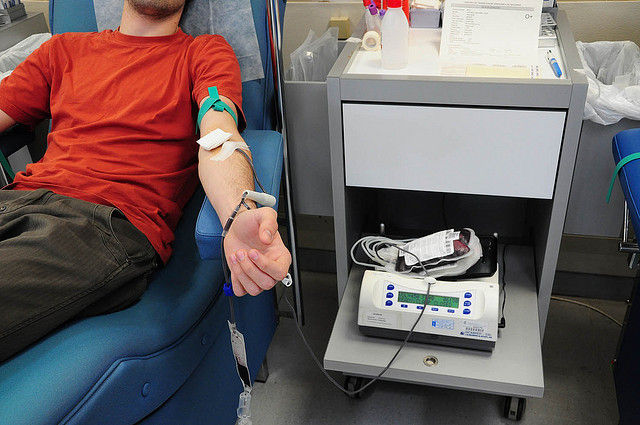
Men who have sex with men are now allowed to donate blood, according to a revised policy posted today by the Food and Drug Administration.
The update reverses a previous policy that banned homosexual men from donating blood indefinitely—a recommendation that dates to 1983, the early days of the HIV/AIDS epidemic. However, to donate blood now, homosexual men must abstain from sexual contact for a year.
“Ultimately, the 12-month deferral window is supported by the best available scientific evidence, at this point in time, relevant to the US population,” Peter Marks, deputy director of the FDA’s Center for Biologics Evaluation and Research said in a press release. “We will continue to actively conduct research in this area and further revise our policies as new data emerge.”
The FDA first proposed the changes to donation guidelines in May.
In a statement on its website, the National Gay Blood Drive said it “supports the FDA for taking this huge first step in the right direction.” Along with the American Civil Liberties Union and other groups, the National Gay Blood Drive advocated that sexual orientation be dropped from blood donation policies. “We will continue to encourage the FDA to consider all the evidence until they arrive at a non-discriminatory policy and discrimination based on sexual orientation is eliminated from the blood deferral process altogether," the group added on its website.
The FDA currently requires that all blood donations be screened for HIV. However, there are several days after a recent infection in which the virus cannot be detected in blood. The agency requires donor screening and issues donor deferrals in addition to blood screening requirements.
Many other countries, including Australia and the United Kingdom, have a similar year-long deferral, the agency noted in Monday's announcement.
reader comments
180